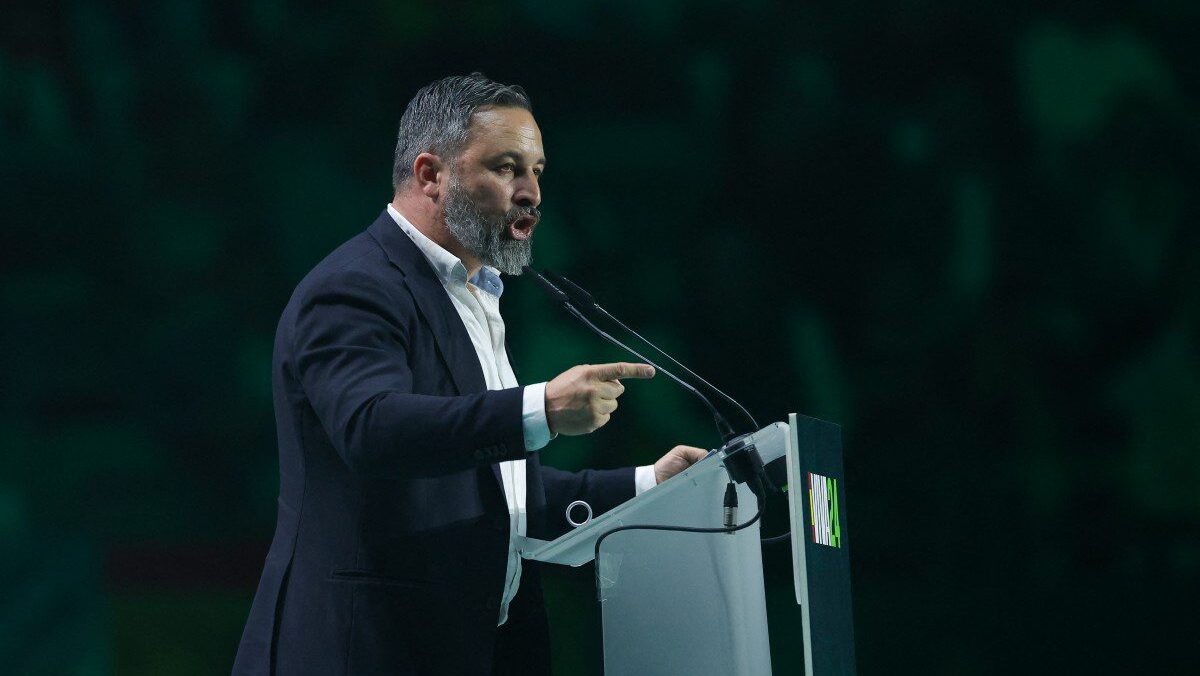
Vox leader Santiago Abascal delivers a speech on stage during “Europa Viva 24” in Madrid on May 19, 2024.
Photo: OSCAR DEL POZO / AFP
Conservatives VOX have no intention of breaking up with the Partido Popular (PP), their larger coalition partner in some Spanish regions despite VOX’s harsh criticism of legacy Euro-centrists PP at the national level.
VOX president Santiago Abascal outlined plans to maintain the pressure on the PP at the national and European levels at his party’s annual Viva event, a weekend-long, family-friendly political rally.
Abscal had choice words for the PP at the rally, calling out “the cowardly right and swindlers” and criticizing the PP for its attempts to reach agreements with the ruling Socialist Party on key national issues, such as the renewal of the judicial branch’s governing body—while refusing to extend the hand of alliance to VOX, despite Abascal’s offers.
It is a tricky balance for VOX. While the party’s durability is a fact, its rapid ascent in 2019-2020 was followed by reaching a plateau at the last general election. The party has not always benefited electorally from its initial alliances with the PP, such as the disappointing election results in Andalucia in 2022 that left it without representation in the regional government. But regional elections in 2023 brought VOX into several regional governments for the first time, while winning new voters in other regions, such as Catalonia.
Meanwhile, many Spanish politicians likely recall the lesson of Ciudadanos, a now almost defunct third party whose unraveling began when it ruptured the coalition government in the Murcia region and sent the region to snap elections. Voters then severely punished the party at both the regional and national levels for being too disruptive and opportunistic. But VOX’s alliances cannot betray its core ideals—and, by extension, its voter base—if it offers a clear alternative to the status quo of Spanish politics.
Given this, the main reason Abscal offered for maintaining his alliance with the PP at the regional level is the successes the party has had in implementing legislation. In Castilla-Leon, for example, where it formed a coalition government with the PP in 2021, it has introduced natalist policies such as universal free daycare and additional ‘baby checks.’ In Castilla-Leon, Valencia, and Aragon, it has also been able to counteract the national Democratic Memory Law, with regional Concordance Laws. Both of these legislative initiatives are key to the VOX platform and important to many of its voters.
At the national and European level, though, a wide gulf remains between the two parties. Here, questions of VOX’s conservative stance on immigration, abortion, family policy, and environmental policy—and the role of the European Union—come into play. As environmental and trade policies have become intertwined and looming questions at the European level, the differences have come into relief. VOX rejects the European Green Deal that the PP largely supports, along with Agenda 2030—stances also reflected in Spanish domestic policy.
VOX is confident both its policies and its politics will be rewarded in the upcoming European elections. It hopes to double its seats in the European Parliament from three to six, as part of the swing to the right that the elections are expected to bring.
